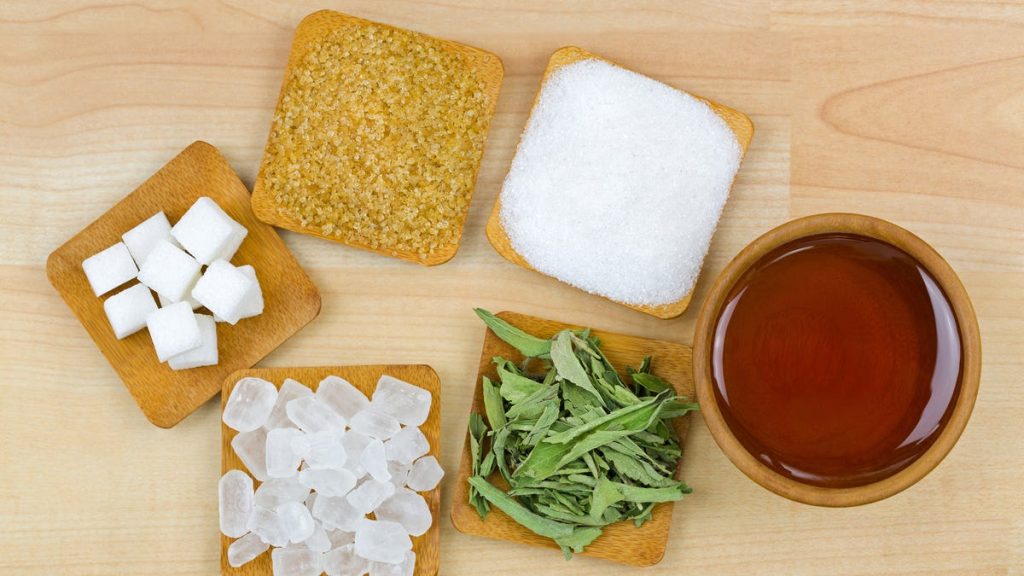The average adult consumes 17 teaspoons of added sugars daily, far above recommended levels. An ideal diet consists of no more than 10% calories from added sugar. Excessive consumption of added sugars can lead to serious health complications, including high blood pressure, diabetes, and fatty liver disease. It is important to differentiate between added sugars and natural sugars found in fruits, honey, and maple syrup. Added sugars can be found on the nutrition facts label and ingredients list of food items, with names such as corn syrup, fructose, and glucose. Natural sugars are unrefined or lightly processed and provide a balanced combination of nutrients for the body.
There are several natural sweeteners and sugar substitutes that can be used in place of refined sugars. Honey, maple syrup, and stevia are popular choices. Honey contains beneficial plant compounds and antioxidants, while maple syrup is rich in minerals and antioxidants that can benefit health. Stevia, made from the Stevia plant, is non-nutritive and sweetens without adding calories. Pureed fruits, such as applesauce and berries, can serve as sweeteners in recipes and provide dietary fiber that aids in digestion. Monk fruit, extracted from a small round fruit found in Southeast Asia, is a plant-based alternative sugar that is non-nutritive and sweeter than table sugar. Fruit juice, when consumed in its 100% natural form, can also be a better option than refined sugar due to its nutrient content.
Consuming the right kinds of sugars, such as natural sugars and sugar substitutes, can help reduce the risk of health complications associated with excessive added sugar intake. These alternatives offer sweetness without the negative impacts of refined sugars, providing a healthier option for those looking to cut back on sugar in their diets. It is important to be mindful of the ingredients in sugar substitutes, as some may contain processed ingredients or sugar alcohols. By incorporating natural sweeteners and sugar substitutes into daily meals and snacks, individuals can still enjoy a sweet treat without compromising their health.
Making the switch to natural sugar alternatives can have numerous benefits for overall health. By choosing options like honey, maple syrup, stevia, pureed fruits, monk fruit, and fruit juice, individuals can satisfy their sweet cravings while also supporting their well-being. These alternatives offer a variety of nutrients and antioxidants that can contribute to improved cardiovascular, gastrointestinal, and respiratory health. In addition, natural sugar substitutes like stevia and monk fruit have been shown to aid in weight management and may have potential benefits for diabetes prevention. By making the shift away from refined sugars and towards these natural alternatives, individuals can take a positive step towards better health and well-being.


